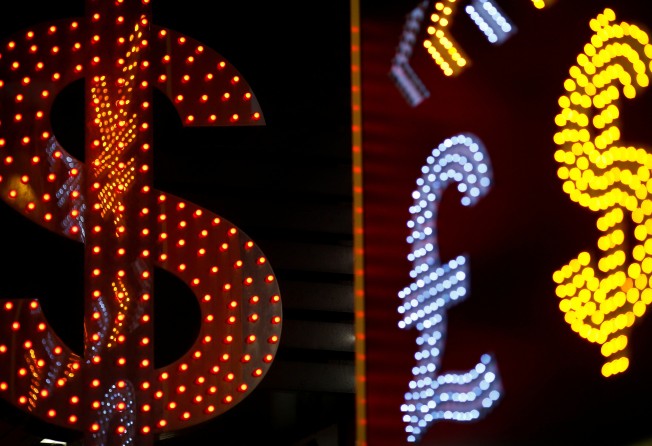China’s foreign exchange reserves rebound in May, gold holdings also rise
- The surprise US$6.1 billion increase to US$3.101 trillion came as Beijing also boosted its gold reserves by 1.88 per cent to US$79.8 billion
- Speculation that China could use massive reserves, mostly US dollar-denominated assets, to counter trade war moves by US President Donald Trump

China’s foreign exchange reserves unexpectedly rose US$6.1 billion in May to US$3.101 trillion, reversing the previous month’s decline.
The rise also came as China increased its gold reserves by 1.88 per cent to US$79.8 billion last month, according to central bank data released on Monday. That represented an increase for the sixth straight month to 61.61 million ounces.
Economists polled by Reuters had forecast China’s foreign reserves would fall by US$5 billion to US$3.09 trillion in May from US$3.0949 trillion in April.
“Looking ahead, global economic uncertainties will become more prevalent and capital market volatility will rise. But our economic development has sufficient resilience and huge potential, and the increasing ability to counter external forces mean they won’t change the long-term growth trend,” said Wang Chunying, spokesman and chief economist of the State Administration of Foreign Exchange, China’s foreign exchange regulator who published the foreign exchange reserve figure on Monday.
As China continues to battle a trade war with the United States, speculation is rife that China’s massive reserves – the bulk of them believed to be held in US dollar-denominated assets – could be used to counter moves by the Trump administration.
At the G20 finance leaders meeting in Japan on Saturday, US Treasury Secretary Steven Mnuchin accused China of allowing the yuan to slide in a bid to offset the impact of Washington’s trade tariffs.
Mnuchin’s accusation stopped short of calling Beijing a currency manipulator as “intervening to support the currency’s exchange rate is not regarded as currency manipulation”.
On Sunday at the G20 meeting, finance ministers and central bankers of the G20 economies pledged to take action against intensifying global trade and geopolitical tensions, conceding that growth remains low and risks were “tilted to the downside”.